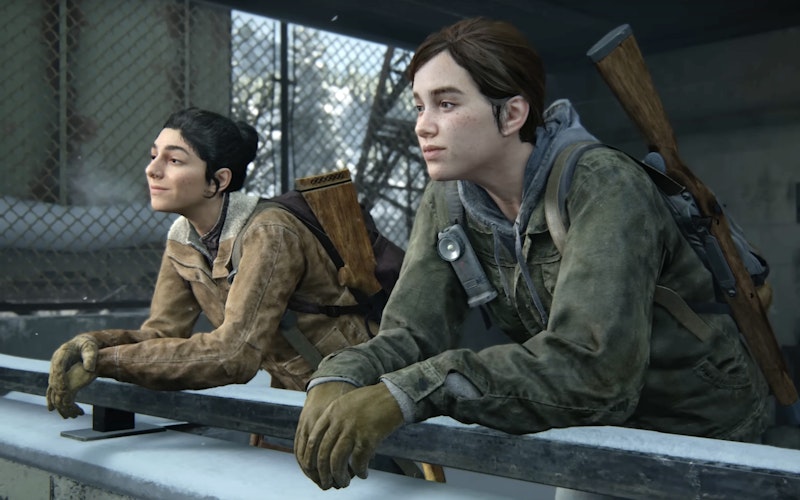
Games
Turning from Tribalism in The Last of Us Part II
The Last of Us inspired years of heated discussion thanks to its ending, but the sequel in its entirety has been controversial. People have picked apart its themes of revenge and forgiveness, as well as the story's pacing and "ludonarrative dissonance." It turns out that the discourse around The Last of Us Part II and the experience of playing the game share something in common: a tragic lack of communication.
In the first game, we follow Joel and Ellie, two survivors of a fungal virus that has wiped out most of humanity. Ellie is immune to the virus, so when these travelers reach a surviving paramilitary group, they are both knocked unconscious and the lead surgeon decides to put Ellie under lethal surgery without her consent. Waking up and realizing this, Joel kills everyone involved in order to save her, then lies about what happened. In The Last of Us Part II—a remastered version of which came out in January—he continues to lie about the event, while others in the paramilitary group create an incomplete narrative about Joel, painting him as the man who slaughtered their people and doomed the world. Abby, the daughter of the lead surgeon, obsessively plots her revenge on Joel and succeeds, causing Ellie to plot revenge in turn, even as she’s unsure of Abby’s motivations.
That fateful day at the hospital is an infection itself, spreading an inability to communicate well across the narrative. Multiple characters keep crucial information close to their chest until it’s too late, while others make hasty decisions. Playing either as Abby or Ellie, you are caught on one side of this tribalistic divide, operating as if the other is the monster. This is reflected in how the game—a third-person shooter—predisposes the player to treat all strangers as dehumanized obstacles, nothing more than collateral damage on the way to your true objective.
In one sobering encounter while playing as Ellie, you are ambushed by a small group whom you must brutally kill with guns and melee weapons. Afterwards, you can find a note that reveals they were defectors from Abby’s group. Even if you attempt to spare a defenseless enemy in this (or any) encounter, the only way to avoid taking life is to retreat. The only language The Last of Us Part II gives you is violence, resulting in bizarre moments like a foe shooting at you while begging for their life at gunpoint or forced button prompts to kill people who pose no threat. Ellie’s signature move for stealth is to slit enemies’ throats, hissing, “Quiet” or “Shut it.” To silence is to kill. Indeed, when you confront Abby for the final time as Ellie, you can merely follow her in silence until they scrape and claw at each other like animals, with nothing but grunts and cries to be heard between them.
The only language The Last of Us Part II gives you is violence.
Critics have called out how the game funnels the player into aggression by design, while its story encourages empathy. This contrast feels more intentional than accidental. While the player has a fuller picture of all sides, nearly every character neither has nor wants such a thing. You can only confirm the predetermined violence.
There are instances, however, that break through the tribalism, as when Abby meets a young boy who saves her life, even though he is part of a “savage” faction at war with her group. She can never return to caricatures when she hears his story and sees his humanity, eventually betraying her people to save him. Abby shockingly echoes Ruth when she tells him, “You’re my people!” These are boundary-breaking depictions of enemies uniting in understanding, standing in sharp contrast to other stories in the Bible that depict tribalism—between Israel and Canaan, for example, or Jews and Gentiles. In contrast, God’s promises of reconciliation—exemplified in books like Jonah and Acts—asks readers to put down the pitchforks and see how former foes can become friends and family.
While vengeance belongs to God, love belongs to us all. Jesus had every right to retaliate against his crucifiers, but he forgave instead. Theologian Preston Sprinkle writes in Nonviolence: The Revolutionary Way of Jesus, “Without the crucified Christ, nonviolence has little power. With Christ at the center, nonviolence conquers the world.” We must not trade in bullets and blows, but olive branches and words of clear, honest, Christ-like communication—full of grace, and seasoned with salt.
Topics: Games